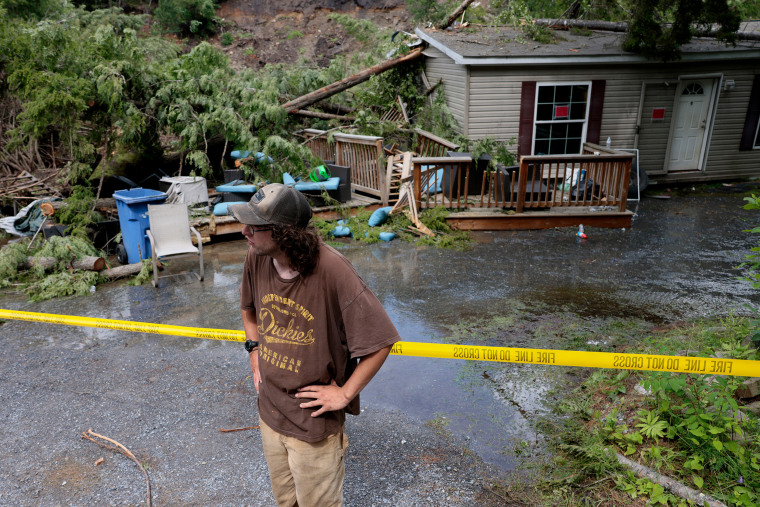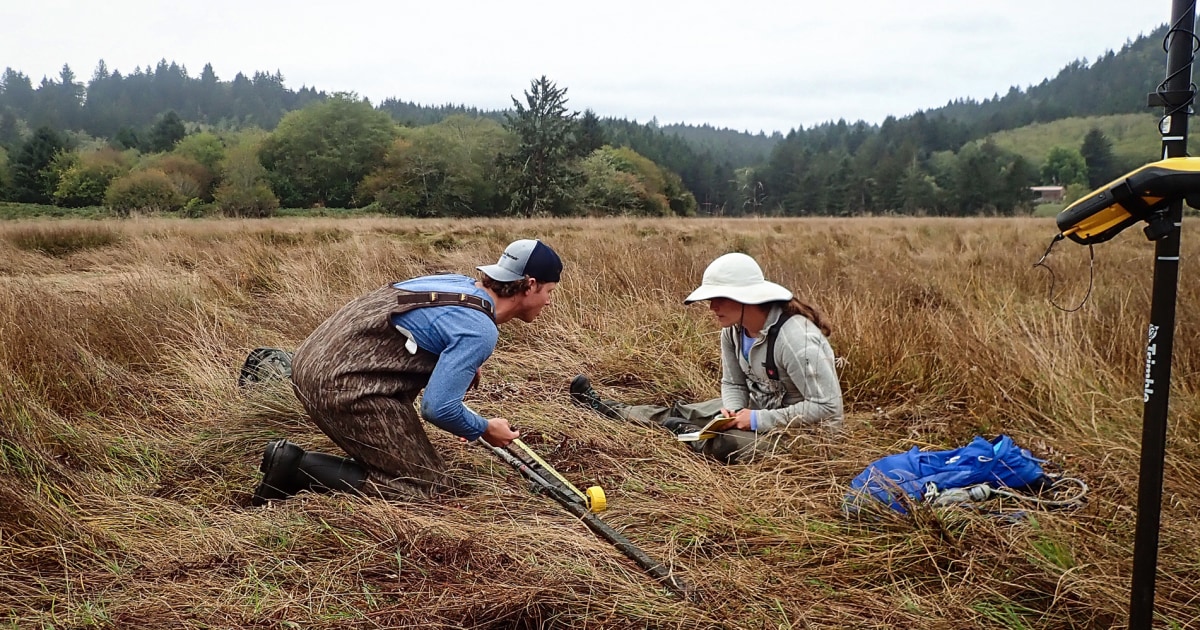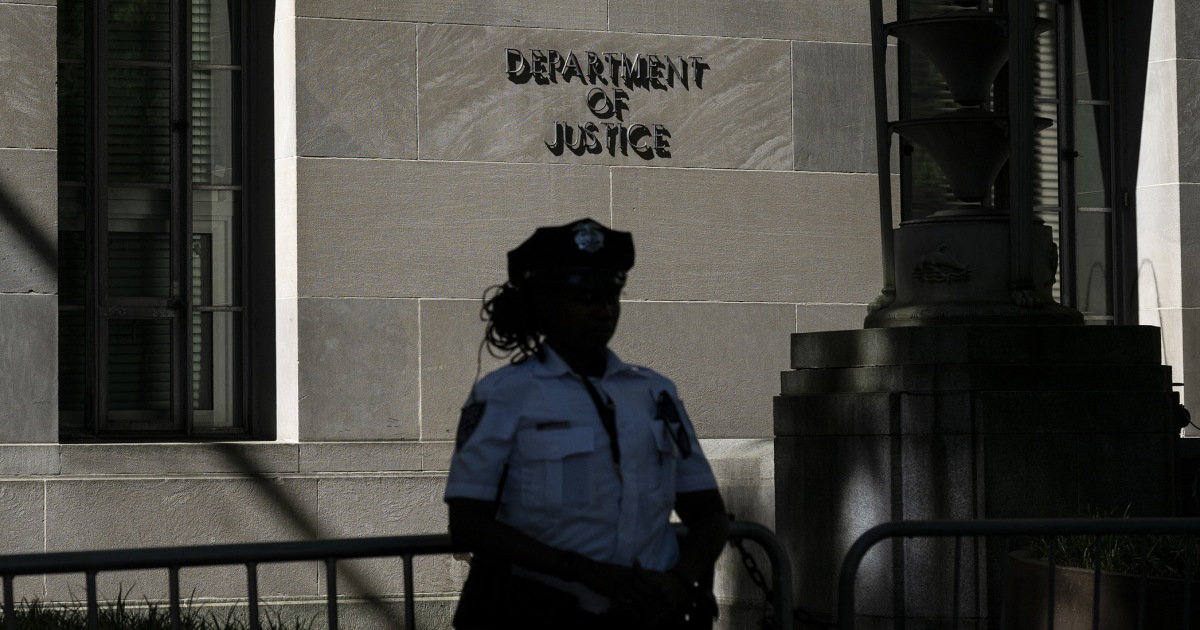A new law in Vermont — the first of its kind in the U.S. — will require fossil fuel companies to pay for a share of the costs of weather disasters fueled by climate change.
Republican Gov. Phil Scott allowed the bill to become law on Thursday night without his signature, after it passed in the state Legislature with the support of a supermajority of Democrats.
Vermont’s law has been referred to as the "Climate Superfund Act" because it is modeled after the Environmental Protection Agency’s superfund program, which requires the companies responsible for environmental contamination to either do cleanup work themselves or reimburse the government for it. Vermont’s bill similarly mandates that big oil companies and other high emitters pay for the costs of recovering from and preparing for extreme weather caused by climate change.
Which companies will be charged, and precisely how much, will be determined based on calculations of the degree to which climate change contributed to weather disasters in Vermont, and how much money those events cost the state. From there, companies’ shares of the total will depend on the amount of carbon dioxide each released into the atmosphere from 2000 to 2019.
In the days after Vermont’s bill passed, state lawmakers were unsure whether Gov. Scott would try to veto it. In a note to lawmakers on Thursday, Scott wrote that “taking on ‘Big Oil’ should not be taken lightly” and that he’s concerned about the law’s short- and long-term ramifications.
He added that he is “fearful that if we fail in this legal challenge, it will set precedent and hamper other states’ ability to recover damages.”
But supporters of the law celebrated its passage.
“Finally, the legislative branch of government is saying it’s time to make the world’s biggest polluters pay a fair share of the cleanup costs,” Elena Millay, vice president of the Conservation Law Foundation in Vermont, said in a statement.
 Ethan Poploski's family home was destroyed by a landslide in Ripton, Vermont, in July 2023.Jessica Rinaldi / Boston Globe via Getty Images file
Ethan Poploski's family home was destroyed by a landslide in Ripton, Vermont, in July 2023.Jessica Rinaldi / Boston Globe via Getty Images file“Without the Climate Superfund, the costs of climate change falls entirely on taxpayers — and that’s not fair,” said Lauren Hierl, executive director of Vermont Conservation Voters. “Now, there’s finally a law in place to require the corporations that caused the damage to pay, too.”
According to Vermont’s new law, the money from fossil fuel companies will be used to modernize infrastructure, weatherproof schools and public buildings, clean up from storms and address the public health costs of climate change. Now that it has passed, state government agencies will be tasked with determining by 2027 the sums various companies owe.
Once that is decided, the law is expected to face intense challenges in court. Past superfund cases have been lengthy, complex and expensive.
“This punitive new fee represents yet another step in a coordinated campaign to undermine America’s energy advantage and the economic and national security benefits it provides,” the American Petroleum Institute, one of the major lobbies for the oil and natural gas industries, said in a statement to NBC News. “Rather than work collaboratively with the industry to further our shared goal for a lower carbon future, state lawmakers opted to pass a bill designed by activists to further their own interests.”
Massachusetts, Maryland and New York are considering similar policies to Vermont’s.
“I think that the more other jurisdictions see climate disasters, the more compelled they’re going to be to find the financial resources to pay for recovery,” said Jennifer Rushlow, a law professor at Vermont Law School.
“I think there’s a lot that can be gleaned from how to structure a legally sound, resilient climate superfund law based on what has happened here in Vermont,” she added.
Maura Barrett is a correspondent for NBC News.
Lucas Thompson
Lucas Thompson is a content producer for the NBC News Climate Unit.

 1 year ago
1 year ago
 (200 x 200 px).png)








 English (US) ·
English (US) ·